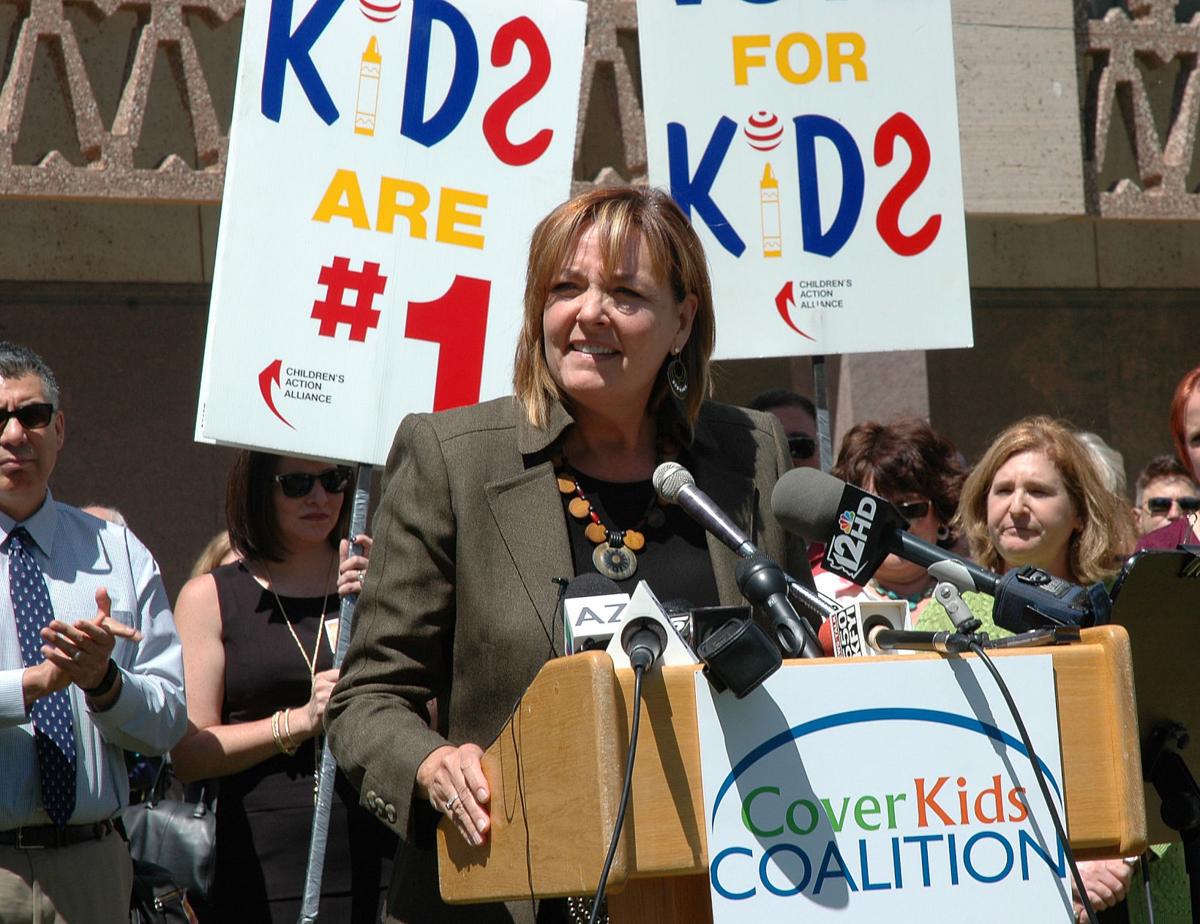PHOENIX — State lawmakers took the first steps Thursday to preserving a health-care program for children of the working poor if Congress scales back federal funding.
House Bill 2127 would repeal a provision of a 2016 state law that restored the KidsCare program but only if the feds pick up the entire cost.
Instead, it would require the head of the state’s Medicaid program to inform the Legislature of any shortfall and give lawmakers the option of keeping the program in place with state dollars.
That creates the chance for the nearly 25,000 children already enrolled — and potentially an equal number who are eligible — to keep getting nearly free care, even if federal lawmakers no longer pick up the full tab. But it also means the state could end up with tens of millions of dollars of costs a year it now does not incur.
At issue is the federal Children’s Health Insurance Program. Approved in 1997, it provides low-cost health insurance for children whose parents make too little to afford private insurance, but too much to qualify for the Arizona Health Cost Containment System. AHCCCS is the state’s Medicaid program, where income eligibility is capped at about $28,700 for a family of three.
Eligibility for CHIP runs up to $41,560 for a family of three; larger families can earn more and still qualify.
Arizona joined the program in 2001, naming its program KidsCare, with the feds picking up about three-fourths of the cost.
In 2010, however, state lawmakers decided they could no longer afford that share. They froze new sign-ups, though those already in the program were allowed to stay.
Enrollment dropped from 45,000 to fewer than 1,000.
The state rejoined in 2016 when Congress agreed to pick up the entire tab. At last count, there were 24,767 children enrolled, with parents paying premiums between $10 and $70 a month.
But that 2016 law contains a trigger: If federal dollars drop below 100 percent, new enrollments would again be shut down.
Rep. Regina Cobb, R-Kingman, sponsor of HB 2127, said that is a real possibility.
Federal funding actually expired on Oct. 1.
Arizona has managed to use leftover dollars from the prior federal fiscal year to keep the program open. In addition, Gov. Doug Ducey has authorized AHCCCS to move around dollars to provide more breathing room while federal lawmakers debate the issue.
Cobb said Thursday there are indications that Congress will act, and soon, to reauthorize the program for another six years.
The problem, she said, is that the plan on the table calls for full funding for only two years; it would drop to 91 percent in the third year and 79 percent by the fifth. With the current trigger in Arizona law, that would shut down enrollment in KidsCare starting in 2020.
Her legislation, given unanimous approval Thursday by the House Health Committee, spells out that if the percentage drops, it would be up to the AHCCCS director to figure out the cost to the state to retain the program.
That information, Cobb said, would be given to lawmakers who could make an informed decision whether the expense is worthwhile.
Rep. Jay Lawrence, R-Scottsdale, worried that the measure was effectively committing the state to unknown future expenses.
Historic enrollment figures show there are at least twice as many children who are eligible as are now enrolled.
And Dana Naimark, president of the Children’s Action Alliance, said the actual pool of qualifying children could be as high as 65,000.
The total cost for the number of children now enrolled is about $111 million a year.
At current enrollment, the most recent version of the federal extension would put the annual cost to the state in 2020 at about $10 million; it would go up to more than $23 million two years later.
Cobb, however, assured Lawrence that nothing in HB 2127 actually allocates money. She said it just sets up a method for the Legislature to make the funding decision when the time comes.
Her legislation now goes to the full House.
Clancie Kazee, a mother of two, told lawmakers how important the program is for her family.
She said her husband is an independent contractor who drives a truck. She is going back to school in hopes of pursuing a career in nursing to increase the family’s income so they can afford their own insurance.
“But until then, we need KidsCare,” Kazee said. “We don’t make enough to afford private insurance. Even with the health care marketplace (in the Affordable Care Act), it is just out of reach.”





